


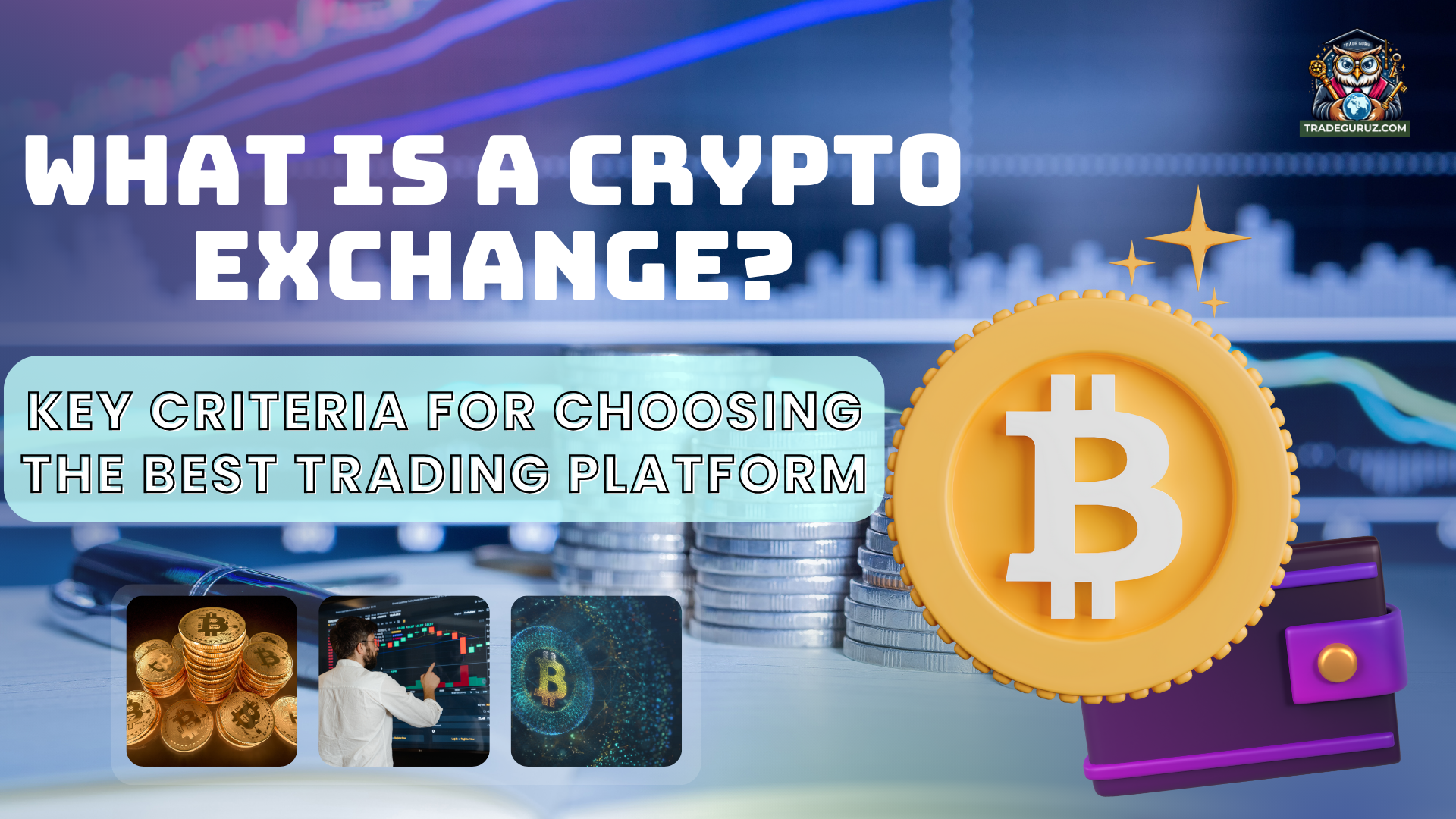
Choosing the right cryptocurrency exchange is crucial for both beginners and professional investors. It not only shapes the trading experience but also safeguards assets and maximizes potential profits. With the increasing number of unreliable platforms, finding a trustworthy exchange has become more challenging. This article will explore the key criteria any investor needs to know when selecting a crypto exchange. Stay with us until the end to discover some of the most popular and reputable trading platforms.
A cryptocurrency exchange is a platform where people can buy and sell digital assets like Bitcoin, Ethereum, and USDT at current market prices. If stock exchanges facilitate the buying and selling of shares, cryptocurrency exchanges play a similar role, connecting buyers and sellers without requiring direct peer-to-peer transactions. You can use an exchange to trade one cryptocurrency for another or purchase digital assets using fiat currencies such as USD or GBP. Exchanges also support converting crypto into fiat, enabling users to withdraw funds to their bank accounts. Additionally, various exchanges deliver financial services like staking, futures trading, and lending to help users maximize their profits.
So why do we need cryptocurrency exchanges? Unlike stocks or commodities, you cannot directly buy cryptocurrencies from banks or stockbrokers. Without an exchange, you would have to manually find someone willing to trade with you, negotiate the price, and complete the transaction without any security guarantees. This process is not only complex and time-consuming but also highly risky. Cases where buyers receive coins but fail to pay or sellers receive money but never transfer the coins are common. Since there is no intermediary to protect you, the possibility of getting your assets back is nearly impossible.
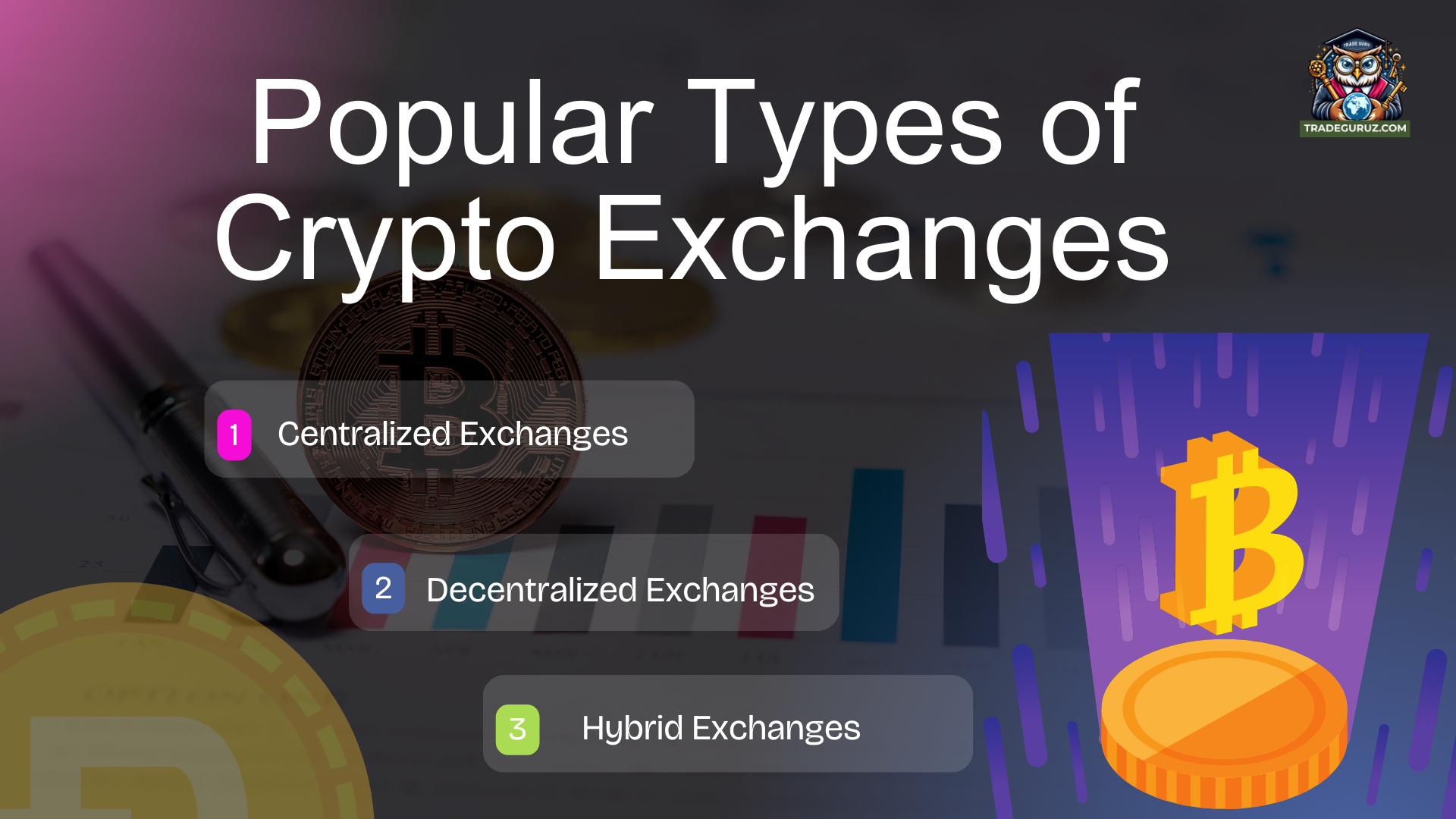
There are many exchanges in the market, but they do not all operate under the same model. The three most common types are Centralized Exchanges (CEXs), Decentralized Exchanges (DEXs), and Hybrid Exchanges (HEXs).
A centralized crypto exchange, abbreviated as CEX, is a traditional model of the crypto market. These platforms are managed by a third party, which could be the exchange’s owner, a company, or an organization. The intermediary manages all aspects of trading, including holding user assets, private key management, user accounts, and overall platform operations.
This centralized model offers several advantages. First, CEXs host a user-friendly interface, making it easy for beginners to navigate the crypto market. Diverse support tools such as spot trading, derivatives, staking, and lending give users flexibility in investing. In addition, fast order matching speed combined with high liquidity helps users make transactions without worrying about too much slippage. However, CEXs are vulnerable to hacks and security breaches because all funds are kept on the exchange's server. This also means that if the exchange is hacked or goes bankrupt, users risk losing all of their funds.
Unlike CEXs, decentralized exchanges operate without a central authority. Instead, they rely on blockchain technology to facilitate direct peer-to-peer transactions. Transactions are often carried out using smart contracts that automate the trading process, eliminating the need for intermediaries and reducing trust-related risks.
DEXs offer users full control and transparency. There is no need to create an account or deposit funds into the exchange, users can directly connect through their cryptocurrency wallet. Even if the exchange is hacked, users’ funds remain secure since the platform does not hold them. This also means that users are responsible for safeguarding their private keys, losing them means losing access to their funds permanently. Besides, DEXs also have lower liquidity than CEXs, which can cause users to buy or sell at a less attractive price than desired. One critical point to consider is that DEXs rely on smart contracts. If there are vulnerabilities in the code, hackers can exploit them, leading to significant financial losses. Therefore, when trading on DEXs, it is essential to choose reputable platforms with high liquidity, such as Uniswap, PancakeSwap, or dYdX.
If you are torn between CEXs and DEXs, hybrid exchanges bring a balanced solution. These platforms combine the efficiency and liquidity of centralized trading with the security and control of decentralized finance. Users can trade cryptocurrencies without depositing funds onto the exchange, benefiting from the speed and convenience of CEXs while maintaining full control of their assets through blockchain technology.
However, hybrid exchanges are still relatively new, and the number of platforms operating under this model is limited. If the hybrid exchange concept continues to evolve, it could become the future trend, replacing CEXs and DEXs with a more optimized trading experience.
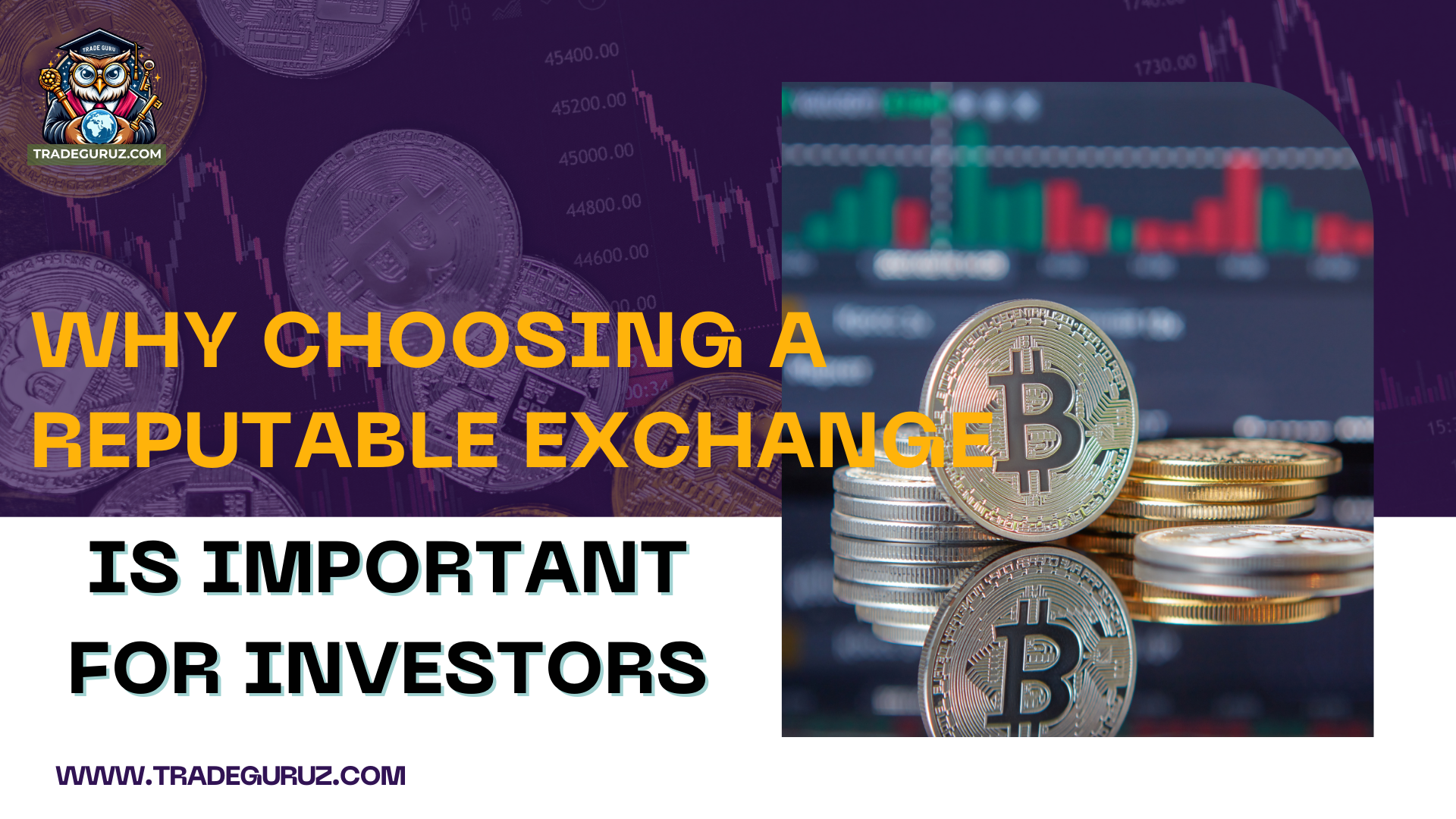
Selecting a trustworthy crypto exchange not only affects your trading experience but also determines the security and protection of your assets. As the crypto market continues to expand, numerous exchanges have emerged, but not all of them uphold transparency, security, and are worth investing in. Unlike traditional financial markets, crypto trading is not strictly regulated, which allows some exchanges to exploit loopholes for fraud or even outright scams. Some unreliable exchanges implement complicated withdrawal policies or freeze withdrawals during periods of high market volatility. This leaves investors unable to protect their capital in time. Besides, certain platforms engage in unethical practices such as price manipulation, inflating trading volumes, or unfairly liquidating users' positions, causing investors to lose money without knowing why.
Therefore, it is crucial to select a trusted exchange that ensures smooth transactions, quick execution, and, most importantly, asset security. The history of exchange collapses, hacking incidents, and market manipulation is extensive, and without careful selection, you could become the next victim. So, how do you choose the right exchange? The following section will outline key criteria to help you make a safe and informed decision when entering the crypto market.
Security is the top priority when selecting a cryptocurrency exchange. Since cryptocurrencies are digital assets, they are nearly impossible to recover once stolen. Poorly secured exchanges are prime targets for hackers, whereas reputable platforms always implement strong security measures to safeguard users' funds. Look for platforms that offer two-factor authentication (2FA). This is an additional security layer that prevents unauthorized access. With 2FA, users cannot log in just with an email and password but must enter a verification code sent via SMS or other means, helping to add protection beyond just an email and password. Additionally, do not forget to check how the exchange stores funds. The industry standard for most exchanges is cold wallets, where most users' assets are stored offline, significantly reducing hacking risks compared to hot wallets.
High liquidity means you can buy and sell assets quickly at competitive prices without significant slippage. Exchanges with active trading volumes provide better liquidity, meaning you will not struggle to execute large trades. If an exchange has low trading volume, you may face difficulties buying or selling assets, especially in large amounts. This can result in high price disparities, forcing you to buy at a higher or sell at a lower price than expected. Moreover, high liquidity indicates a platform’s credibility and popularity. In contrast, low-liquidity exchanges are often less reliable and more susceptible to price manipulation by whales, which can be detrimental to retail traders.
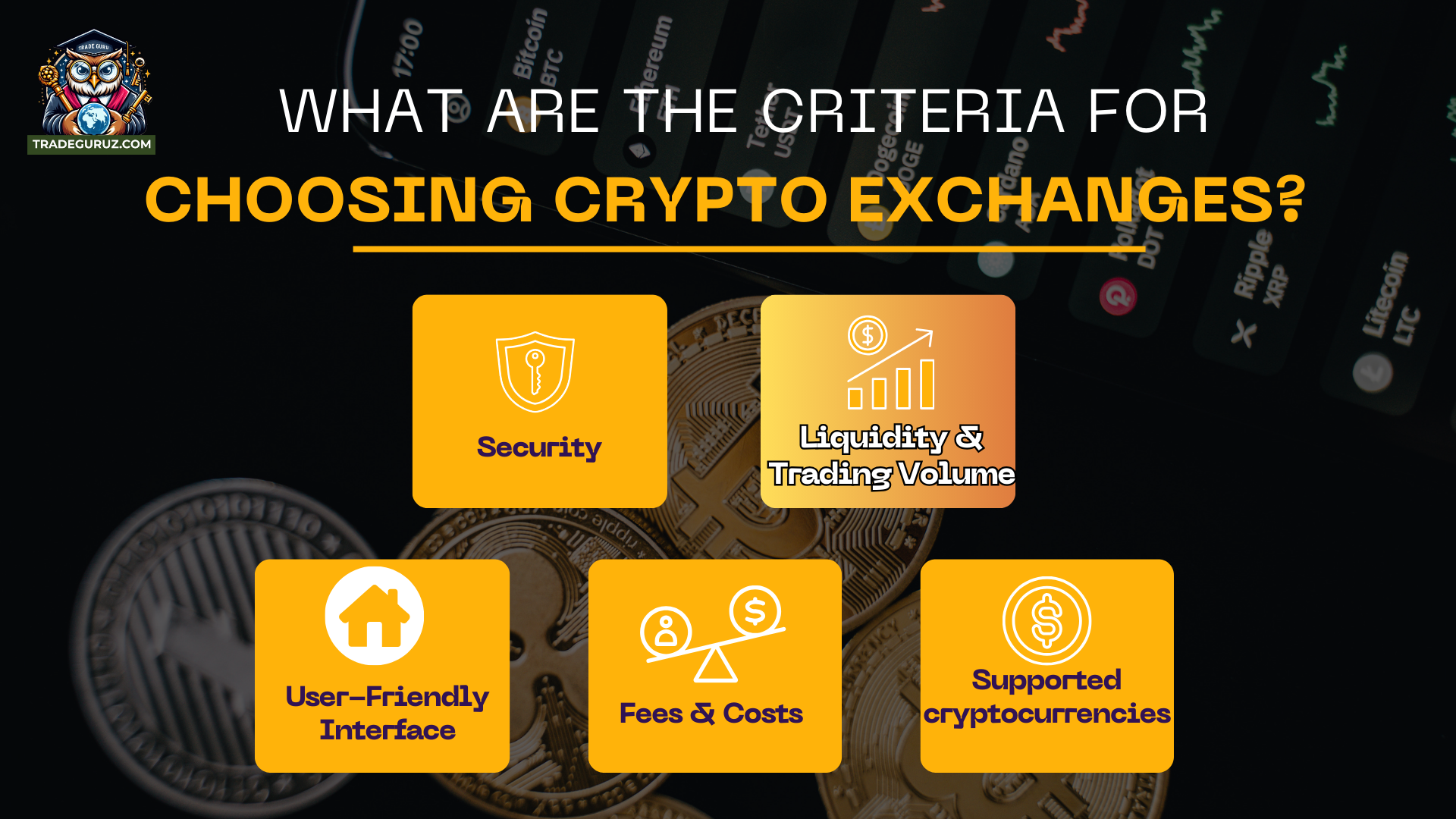
Whether you are a beginner or an experienced trader, a well-designed and intuitive interface makes trading more convenient. In particular, advanced trading tools for executing complex strategies efficiently are something that any veteran trader will appreciate. In addition, since crypto markets operate around the clock, compatibility with multiple devices is important. Opt for an exchange with a responsive design that adapts to various devices, including mobile phones and tablets to facilitate managing your investments as flexibly as possible.
Trading fees significantly impact your profitability, making them a key consideration when selecting an exchange. Common fees include transaction fees (maker/taker), deposit/withdrawal, and spreads. Some exchanges have low trading fees but high spreads, causing you to lose more money when buying and selling. Some others are free to deposit but charge high withdrawal fees, making it inconvenient to transfer assets to your wallet. Therefore, it is advisable to consider the balance between fees depending on your investment goals. Before choosing an exchange, thoroughly review its fee structure, including hidden fees and crypto withdrawal charges. Comparing trading fees across multiple platforms can help you find the most cost-effective exchange for your investment needs.
While there are thousands of cryptocurrencies in the crypto world, no exchange lists all of them. This is also obvious because exchanges must carefully select assets to ensure liquidity, comply with regulations, and minimize risks. However, the right to choose an exchange suitable for your investment taste is entirely in your hands. If you only trade popular assets like Bitcoin (BTC) or Ethereum (ETH), the majority of exchanges can meet your needs. But if you are interested in altcoins, DeFi tokens, or new projects, opt for an exchange with a rich portfolio and frequently update its listing to avoid missing out on investment opportunities.
By carefully considering these criteria, you can select a reliable exchange that aligns with your trading goals and minimizes risks while maximizing your investment potential.
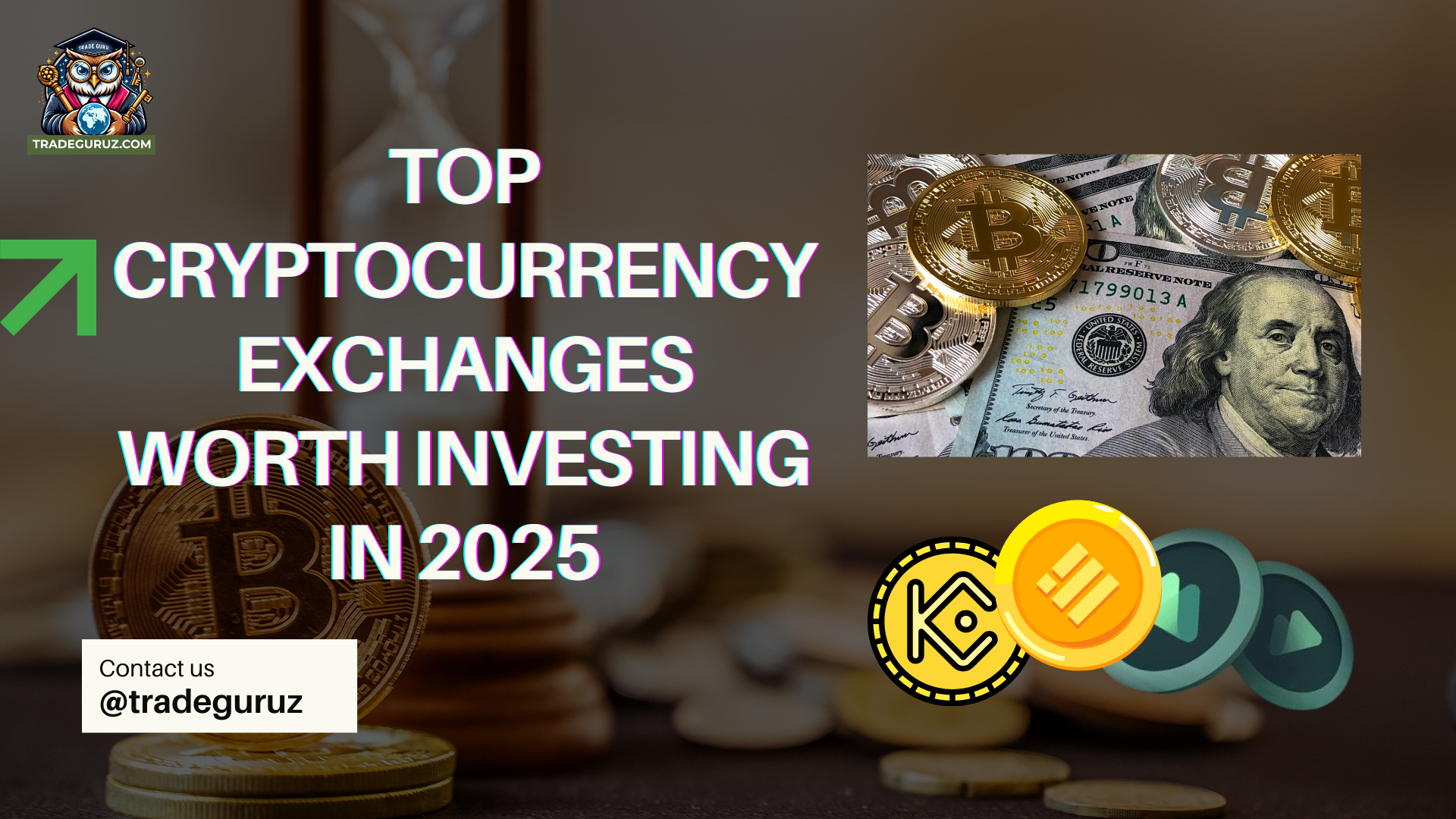
Based on the above criteria, here is information about some of the most reputable and popular trading platforms you can consider.
Binance is undeniably the giant of the crypto market, with over 200 million users and a daily trading volume exceeding $65 billion. In addition to standard spot trading, Binance delivers services such as staking and derivatives trading. Notably, Binance has its own token, BNB, which allows users to reduce trading fees to 0.075% when used to pay fees. In terms of security, Binance offers the SAFU (Secure Asset Fund for Users) to protect users from unexpected incidents. As the largest exchange; however, Binance is frequently scrutinized by regulatory authorities and has faced legal restrictions in several countries.
YouTube Video: How to Create a Binance Account: Step-by-Step Registration Guide
YouTube Video: How to Send Crypto on Binance: The Best Way to Send and Receive Cryptocurrency
KuCoin is one of the most popular exchanges with a diverse listing portfolio, featuring over 700 altcoins from major to minor projects. It stands out for its low trading fees, starting at just 0.1%, with additional discounts available when using KCS tokens for payments. Besides spot trading, KuCoin supports advanced features such as margin trading, futures trading, staking, lending, and trading bots - enabling investors to automate their trading strategies. KuCoin has robust security measures, including multi-layer security systems with two-factor authentication (2FA) and email verification codes. However, its average trading volume is in the tens of millions, significantly lower than major exchanges like Binance. This could be a concern as lower trading volume sometimes means lower liquidity. If you only trade small amounts then it is not a problem, but if you plan to trade in larger volumes, you might consider the next exchanges we mentioned.
YouTube Video: How to Create a KuCoin Account: Easy Steps for New Users
MEXC is one of the fastest exchanges in listing new coins/tokens, enabling investors to access potential projects at an early stage. This makes it a top choice for those looking to "hunt" new tokens before they become widely available. MEXC’s ultra-fast trading engine processes up to 1.4 million transactions per second, ensuring quick and efficient trading even during peak trading periods. The exchange delivers a wide range of assets, including over 2,000 cryptocurrencies and 2,300 trading pairs, providing an ideal opportunity for investors who wish to diversify their portfolios. That being said, some traders have reported that MEXC's interface can be somewhat confusing for beginners. Moreover, due to its focus on altcoins and new tokens, the investment risks are higher than in exchanges with more stable asset portfolios.
YouTube Video: How to Create a Mexc Account: Step-by-Step Guide for Beginners
We hope this article has equipped you with valuable insights for your crypto investment journey. Choosing the right crypto exchange is crucial, so take the time to thoroughly research the criteria we have mentioned for each platform to find the one that best suits your investment strategy. Wishing you success soon on your journey!
Thank you for taking the time to read this article.
For any inquiries, please contact us at TRADEGURUZ.